Finals time is creeping up for many teams in the coming weeks, and with it comes pressure for players and teams to produce the brand of netball that got them there in the first place.
While some teams seem born to play finals and almost always play well on the big stage, not all players deal with the pressure well or are able to bring their best when they want to the most.
While enjoying the finals experience is more important than the result itself (try telling that to some players!), developing and improving finals performance is also an important part of coaching, as well as each player’s development.
So have a think about some strategies that will have your team ready for finals, including some of our favourites below.
PREPARE THEM WELL
Something we’ve always said to our players as finals approach is that nerves are a normal part of big games and big moments, and it’s OK to be nervous. But often those nerves stem from fears that they’re underprepared. So firstly it’s important for them to be reminded that if they’ve done the preparation and know what they need to do, both from a team perspective and against individual opponents, they’ll be far less nervous than their opposition, and better able to perform.
HAVEN’T SIGNED UP YET? JOIN NOW FOR MORE THAN 450 DRILL VIDEOS!
Preparation doesn’t just happen in the week or two before finals. It happens all year, both at training and at games, by insisting on good habits and standards from each and every player. That means things as small as never finishing a drill on a negative, like a dropped ball or a bad pass. It’s staggering how often as a coach you’ll watch players cut corners, particularly if they’re working in small groups or pairs. If your instruction is for each player to complete 10 drives to receive a pass, and they’ve dropped three of those passes, that won’t cut it! Ensure you’re giving them feedback about how they can improve, but also ask that they finish the full 10. Be clear from the start that your expectation is for a set number of COMPLETED passes, movements, intercepts/ or goals, and your players will begin to demand that same level of performance from themselves.

PRACTICE PRESSURE
The challenging part of coaching young teams in finals or big game situations is that some players won’t have played many finals before, or been tested under serious pressure.
Dealing with that pressure is a very difficult thing to teach – some players naturally handle it well, while others struggle to produce their best.
So try to build little periods of pressure into your training sessions. If players are performing a ball drill, finish it by asking them to complete a certain number of passes in a row, without an error. You’ll be amazed how much more focused players can be when there’s something on the line, and this begins to develop their ability to concentrate and maintain their intensity for when it really matters – in games.
And it’s not just matchplay that teaches players how to bring their best when things get competitive. Try to add a competitive component to most of your drills, so players are constantly being put in situations where they must perform but also remain composed, as well as evaluating their own performance afterwards and thinking about how they might improve. Something as simple as asking players to count how many intercepts they manage to take in an intercept drill, and then seeing if they can beat it when they try it a second time, can be enough to invite a bit of pressure into a training session.
GO-TO PLAYS
Do your players know what to do when things aren’t going to plan? Or do they allow the opposition to score six goals in a row before someone finally switches on and does something about it?
STRATEGY VIDEOS: CHECK OUT ALL OF OUR SET PLAY VIDEOS HERE
Practice some set structures, plays and keywords that the team knows to fall back on if the opposition starts to get on top. That could mean setting up an “overload” centre pass if the opposition scores three goals in a row, in order to get a quick one back and allow everyone to settle. Or it could be something as simple as your defensive end recognising which opposition player is receiving all the centre passes, and double-teaming that player for the next few, in order to disrupt the opposition’s flow.
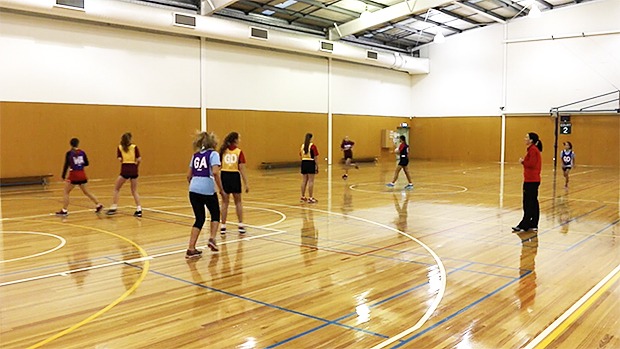
REHEARSE SCENARIOS
Another way to help your players become accustomed to finals pressure is to build little scenarios into your training sessions, to get your players thinking and working their way through tough moments when the odds are stacked against them.
Rather than just running standard matchplay to finish off training, how about these game-like situations to make your players think, and value every possession:
Two goals down with five minutes to go
The attacking team takes every centre pass, and a goal is worth one, but a turnover is worth minus one. The aim is for the attacking team to finish ahead after five minutes, by consistently converting centre passes, as well as limiting errors.
Two goals down in defence
The same five-minute scenario, but this time the focus is on the defensive team, who start two goals down and lose a further goal for every one the attacking team scores. BUT the defensive team gets TWO goals if they manage to turn the ball over or force an error from the attacking team. This scenario encourages the defenders to play tight and maintain their intensity for a full five minutes in order to build pressure, as well as encouraging them to have a real crack at any loose passes that can be intercepted, as there are double rewards on offer for turnovers.
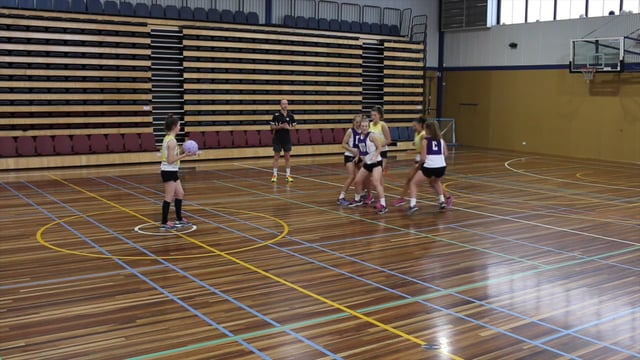
Two/three/four/five centre passes through
You won’t believe how much harder this one is than it sounds. The attacking team takes continuous consecutive centre passes, and has to score two/three/four/five goals in a row (depending on their age/ability). If they make an error, they go back to zero and must start again, i.e if they’re aiming to convert five centre passes but reach four and then make an error on the fifth, they must start from scratch and get five in a row again.
It’s all about being consistent, avoiding forcing the ball into risky situations, and goalers finishing off under the post. If your players are older/more advanced, you can add an additional rule that the goal must be scored on the first shot (i.e. there are no rebounds – a missed shot is a turnover) in order to create some real pressure, particularly as they get close to reaching their target number of conversions.
Goaler spot shots
Being a goaler is a tough gig! Barely anyone will remember that a defender didn’t attempt to intercept a ball that was within their reach in the dying minutes, or a centre who dropped off defensively in key moments throughout an entire game, but everyone always remembers when a goaler misses a crucial shot that could win or tie a game. It’s a fact of netball life that so often the result of a big game will come down to which team’s goalers have an “on” day – that pressure and responsibility is part and parcel of being a goaler, particularly if players want to progress to higher levels.
So help your goalers practice nailing shots when they’re nervous. Set up 4-6 cones throughout the goal circle – some close to the post, and some further out. Give each goaler a ball, and assign the other (non-goaler) team members to one of the goalers. Each goaler has to shoot two/three/four goals in a row from each cone before moving onto the next. If they miss, not only do they start from zero at that cone, but they (and the teammates who’ve been assigned to them) have to sprint to the centre circle and back, before starting at that cone again. It’s a great way of practising shooting under both fatigue and mental pressure.
The important thing here is not to focus on the result, i.e. the player making or missing the shot. The focus is on encouraging the player to settle and re-establish their technique each and every time. Some goalers will stop bending their knees when they’re nervous, while others will develop heavy hands, and lose their finger flick. So remind them each time to slow down, get settled and go through their normal routine.
Good luck building some of these tips into your training sessions and best of luck for finals!
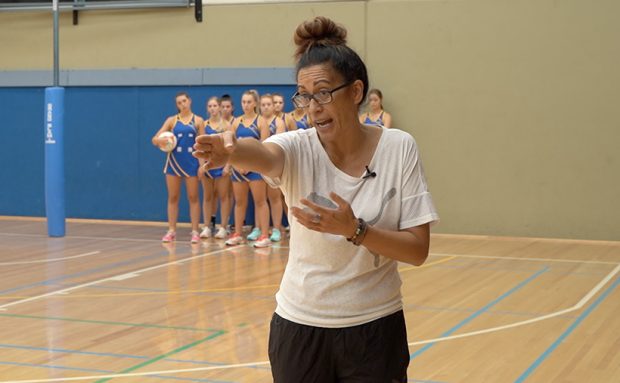
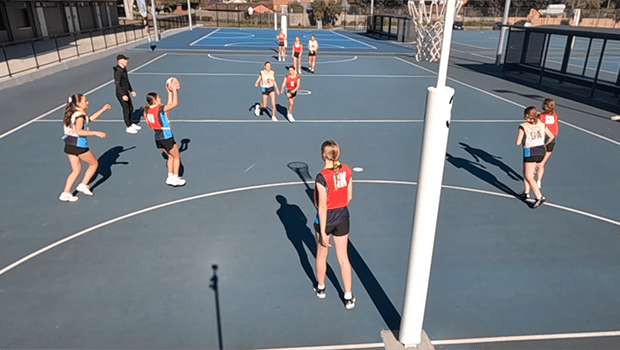

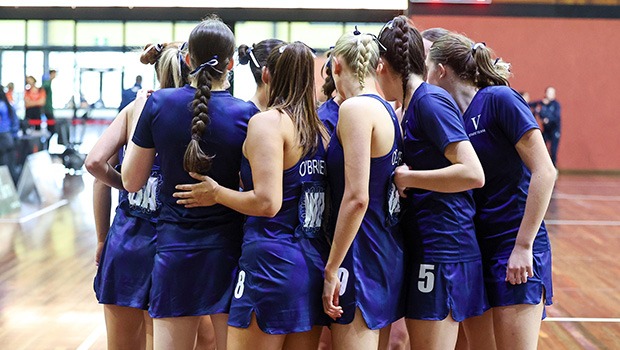
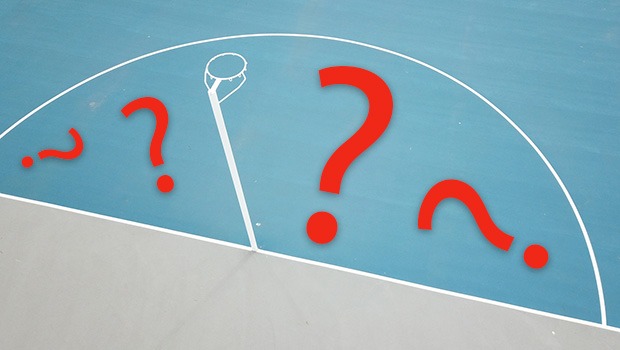
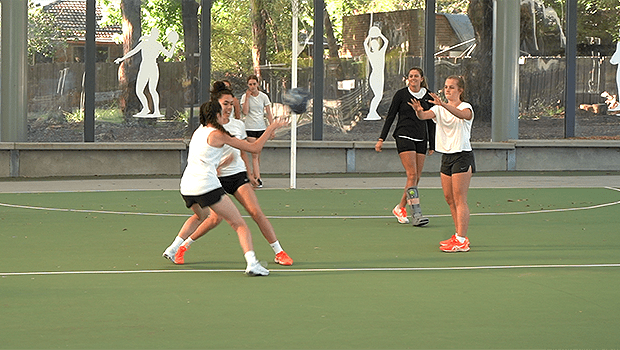
Great article! I love the pressure recreation drill tips – it’s so hard to prepare for finals in a team that has minimal finals experience.
Some really useful info here👍 Like the under pressure drills too